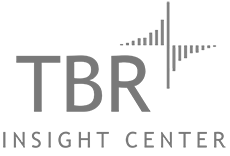Digital twins, innovation and Godzilla: 3 IT services trends for the rest of 2021
Digital twins, supply chains and IoT fuel near-term opportunities
Increasingly in 2021, IT services vendors and consultancies will expand their offerings around digital twin solutions, reacting to both the maturation of the technology enabling digital twins and the heightened awareness, brought on by the pandemic, of the value of digital twins, particularly in the manufacturing space. Vendors that have acquired manufacturing sector expertise or can build on legacy capabilities around product engineering services should be best positioned to expand within existing clients and grow market share.
As digital twins become part of the supply chain, consultancies will likely use IoT-enabled solutions to mitigate some of the challenges brought forward in the pandemic, when manufacturers over-rotated on supply chain optimization without sufficient consideration for broad-based ecosystem risk. As technology vendors, such as Microsoft (Nasdaq: MSFT), strike new partnerships to bring cloud-enabled analytics to shipping, opportunities for IT services vendors and consultancies will expand for interoperability across supply chains, orchestration of technologies and data, and change management. This will be especially true as manufacturing clients with legacy machinery look to move to the cloud following the pandemic-induced stampede by all industries to cloud.
Key marker for TBR as 2021 unfolds: The number of IT services vendors’ and consultancies’ SAP-specific engagements in the manufacturing sector
Notable recent vendor activities:
- As cloud becomes Accenture’s (NYSE: ACN) de facto technology driving services opportunities, the company is also building relationships with local leaders to create alternatives to widely adopted supply chain channels that COVID-19 highly disrupted. For example, the purchases of REPL Group and GRA will bolster Accenture’s supply chain consulting and operations capabilities across the U.K. and Australia. At the same time, Accenture collaborated with data intelligence vendor Ripjar to jointly support Royal Dutch Shell’s efforts to enhance its supply chain screening capabilities.
- In 1Q21 Tata Consultancy Services (TCS) launched the Autoscape Autonomous Vehicle (AV) Solutions suite, which provides data services and tools to accelerate AV development for OEMs, startups and other players in the AV ecosystem. Establishing itself as an innovative partner in spaces such as AV development and leveraging deep domain expertise help TCS pursue high-value business advisory services.
- Enterprises in the manufacturing sector weathered the worst of the pandemic at the beginning of 2020 and made the necessary run-the-business operational changes to improve operational efficiency and reduce costs. As such, Atos (Nasdaq: ATOS) evolved its relationships and is currently working with clients to ensure their IT environments and workforce processes are modernized, secure and digitally enabled, and their operations are resilient. Atos is offering the benefits of cloud infrastructures through the Atos OneCloud portfolio initiative aimed at modernizing clients’ applications and improving business processes through industry-specialized cloud solutions and acquisitions, such as that of Maven Wave, which added cloud and technology consulting capabilities, notably around Google Cloud, and Miner & Kasch, which added AI and machine learning capabilities.
For additional information, see TBR’s upcoming IT Services Vendor Benchmark in June, which will contain a special section on manufacturing, as well as TBR’s quarterly reports on the vendors mentioned above.
Give me innovation, not transformation — or maybe the other way around
As dramatic operational fluctuations stemming from the pandemic — with companies scrambling to first ensure employee safety and well-being, then secure productivity and push for a return to growth — begin to level off and move into more normal cadences and reliably predictable financial performances, enterprises forced to be resilient and innovative in 2020 have begun expecting increased innovation and transformation from their IT services vendors. Run-the-business and cost-cutting engagements, paired with cloud adoption, drove revenues through the second half of 2020; innovative strategies to take advantage of a massively disrupted market and transformation to take advantage of the cloud will drive revenues through 2021.
After a year of risk and worry and a period focused on optimization and stabilization, enterprises have returned to pilot projects aimed at internal disruption and capturing new market opportunities. This trend increases consultancies’ stickiness with clients in the short term, while opening those consultancies to risks of losing market share as more technology-centric IT services vendors use cloud and an entry to IT transformation. In the words of one IT services vendor senior executive, “Innovation is strategy; transformation is a repeatable framework. Get the expensive consultants for innovation and the cheaper offshore-centric services vendor for transformation.”
Every quarter, TBR’s Professional Services and Digital Transformation teams consider trends across the IT services industry, expected impacts on leading vendors, and opportunities for further competitive differentiation and separation. We then fold these trends into our ongoing research and examine how each vendor responds, often through speaking directly with the vendors to assess their positioning against these trends and expected opportunities.





Leave a Reply
Want to join the discussion?Feel free to contribute!